Search
Remove Ads
Advertisement
Summary 
Loading AI-generated summary based on World History Encyclopedia articles ...
Search Results

Article
Ten Great Slave Revolts in Colonial America and the United States
There were 250-311 slave revolts in Colonial America and the United States between c. 1663 and c. 1860 as defined by scholar Herbert Aptheker (l. 1915-2003), but, almost certainly, many more that were not reported, as news of an uprising...
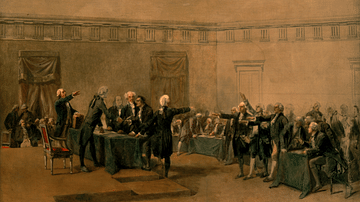
Image
The Declaration of Independence of the United States of America
The Declaration of Independence of the United States of America, July 4, 1776, oil on canvas by Charles Édouard Armand-Dumaresq, c. 1873.
White House Cabinet Room, Washington, D.C.

Article
Henry Box Brown on Slavery in the United States
The Narrative of the Life of Henry Box Brown (1851) is the autobiography of Henry Box Brown (l. c. 1815-1897), who became the most famous fugitive slave of his time when he had himself shipped in a box from Richmond, Virginia, to Philadelphia...

Image Gallery
5 Maps on the Origins of the United States
In this gallery of five maps, we examine the creation and expansion of the United States from the colonization of North America by European powers to the routes of the explorers who pushed ever westwards to the Pacific coast. Here we can...
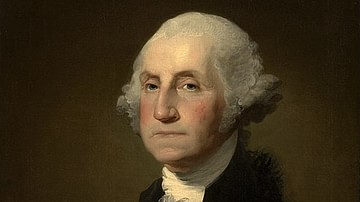
Collection
Founding Fathers of the United States
The Founding Fathers of the United States were the leaders of the American Revolution (c. 1765-1789), who led the push for American independence from Great Britain, founded the United States, and oversaw the implementation of the US Constitution...
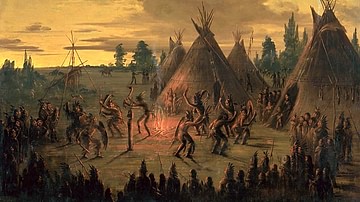
Definition
Native Peoples of North America
The Native Peoples of North America (also known as American Indians, Native Americans, Indigenous Americans, and First Americans) are the original inhabitants of North America believed to have migrated into the region between 40,000-14,000...
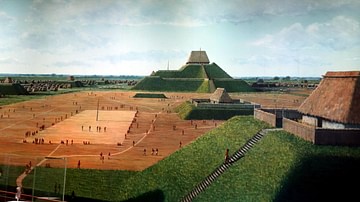
Definition
Pre-Colonial North America
Pre-Colonial North America (also known as Pre-Columbian, Prehistoric, and Precontact) is the period between the migration of the Paleo-Indians to the region between 40,000-14,000 years ago and contact between indigenous tribes and European...

Definition
Indian Princely States
The Indian Princely states (aka Native States or Princely India) were those states in the Indian subcontinent the British did not conquer but which were typically bound by treaty first to the East India Company and then to the British Crown...

Article
The Norse in America: Fact and Fiction
The idea that it was the Norse who discovered America first emerged in the late 18th century, long before there was any public awareness of the sagas on which such claims were based. In the course of the 19th century, evidence for a Norse...
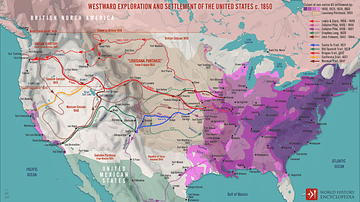
Image
Westward Exploration and Settlement of the United States c.1850
A map illustrating the patterns and routes of westward exploration and settlement in the United States after the “Louisiana Purchase” from France in 1803. As Napoleonic dreams of a great North American Empire gave way to French hegemonic...